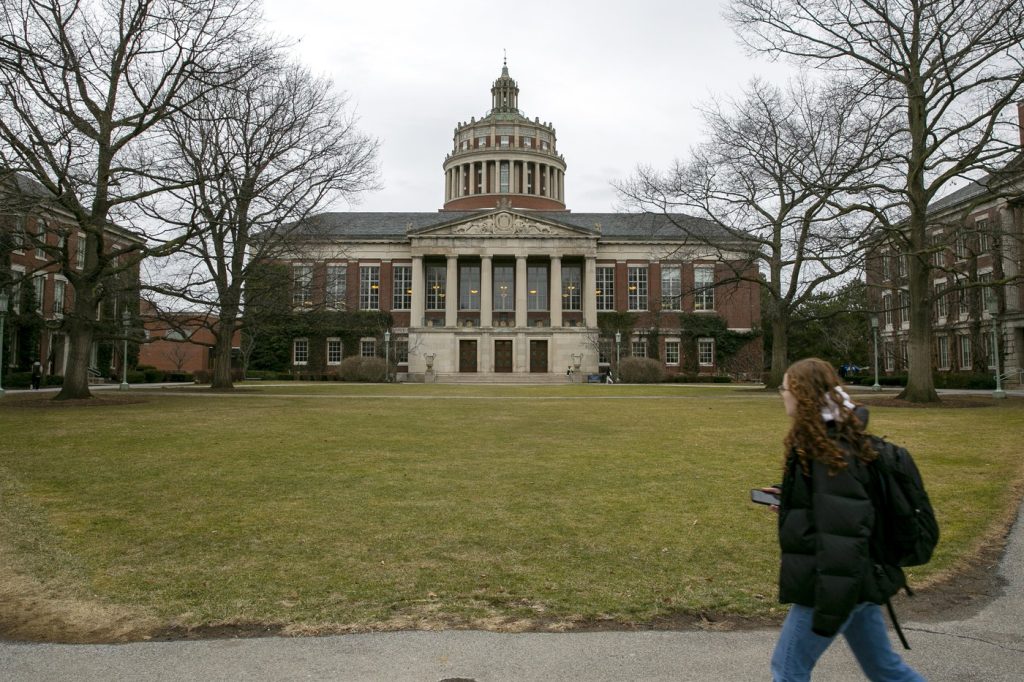WASHINGTON (AP) — A recent crackdown on foreign students is causing alarm among colleges, as many officials report that the Trump administration is employing new tactics and vague justifications to expel certain students from the United States. This situation has raised concerns that international students may be deterred from pursuing education in the U.S.
International students whose entry visas have been revoked are now receiving immediate orders from the Department of Homeland Security (DHS) to leave the country, a significant departure from previous practices that often allowed students to remain and complete their studies. Reports indicate that some of these students have been targeted due to pro-Palestinian activism or even minor infractions, such as traffic violations, leaving others confused about the reasons behind the actions against them.
At Minnesota State University in Mankato, President Edward Inch disclosed that visas had been revoked for five international students for reasons that were not clearly communicated. School officials learned of the revocations during a status check in a database, following the detention of a Turkish student at the University of Minnesota, which was reportedly linked to a drunken driving conviction. In a letter to the campus, Inch expressed the gravity of the situation, stating, "These are troubling times, and this situation is unlike any we have navigated before."
During his campaign, President Donald Trump pledged to deport foreign students involved in pro-Palestinian protests. This promise saw action when federal agents detained Mahmoud Khalil, a Columbia University graduate student and Palestinian activist who actively participated in campus protests. Secretary of State Marco Rubio has since indicated that students are being targeted for both their protest activities and potential criminal activities.
In recent weeks, reports have surfaced from colleges across the country, revealing that international students have had their entry visas revoked and their legal residency status terminated by authorities without notice. Institutions affected include Arizona State, Cornell, North Carolina State, the University of Oregon, the University of Texas, and the University of Colorado. Some students have begun to arrange their departures voluntarily, while others, like students from Tufts and the University of Alabama, have faced detention by immigration authorities, often without prior notification to the universities.
School officials have expressed concerns that the federal government is now bypassing colleges entirely when targeting international students. Instead of using established protocols for revocations, authorities are allegedly deleting students' records from federal databases, thereby increasing the urgency and suddenness of the orders for students to leave the country. Miriam Feldblum, president and CEO of the Presidents' Alliance on Higher Education and Immigration, has remarked that the current practices are unprecedented and alarming.
Previously, when international students had their entry visas revoked, they typically retained their legal residency status, allowing them to continue their studies. However, the trend has shifted, with increasing numbers of students facing termination of their legal status, which exposes them to the risk of arrest. At North Carolina State University, two students from Saudi Arabia opted to leave the U.S. after learning their legal status had been terminated, prompting the university to assist them in completing their semester from abroad.
At the University of Texas at Austin, staff conducting a check in a federal database discovered two individuals on student visas had their permission to stay in the U.S. revoked. One individual from India faced termination on April 3 due to a criminal records check, while another from Lebanon had their status terminated on March 28 for similar reasons. Both individuals were undertaking professional experience after completing their coursework and had not violated any of the associated requirements.
Some visa revocations have occurred under a little-known law prohibiting noncitizens whose presence could pose "serious adverse foreign policy consequences." This law was recently invoked by Trump in response to calls for action against anti-Semitism on campuses. Nonetheless, certain targeted students have no apparent ties to political activism, with some facing deportation over misdemeanor charges or even minor traffic violations, raising questions about First Amendment rights as various cases progress through the courts.
The Association of Public and Land-grant Universities is seeking discussions with the State Department to address these issues. While it remains uncertain whether the number of visa revocations has increased significantly, the association reports that many member institutions have observed at least one revoked visa among their international students. Colleges are now scrutinizing social media and interviewing students in attempts to uncover any links to political activism.
Overall, the landscape for international students in American universities is shifting, as many of these institutions have historically been top destinations for global talent, contributing significantly to tuition revenue and research advancements. However, the prevailing atmosphere raises concerns that foreign students may consider alternatives for their educational pursuits.










